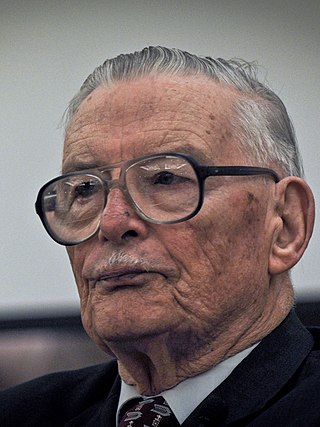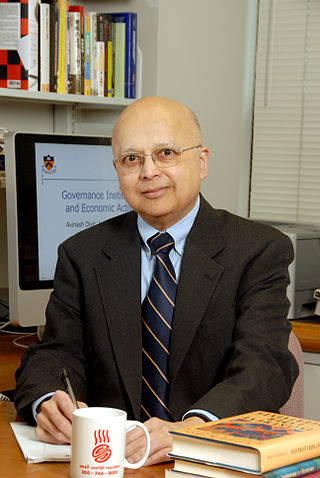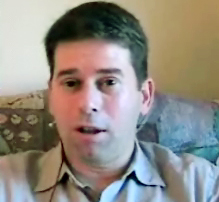Related Research Articles
Political science is the scientific study of politics. It is a social science dealing with systems of governance and power, and the analysis of political activities, political thought, political behavior, and associated constitutions and laws.

Kenneth Joseph Arrow was an American economist, mathematician, writer, and political theorist. Along with John Hicks, he won the Nobel Memorial Prize in Economic Sciences in 1972.
Public choice, or public choice theory, is "the use of economic tools to deal with traditional problems of political science." Its content includes the study of political behavior. In political science, it is the subset of positive political theory that studies self-interested agents and their interactions, which can be represented in a number of ways—using standard constrained utility maximization, game theory, or decision theory. It is the origin and intellectual foundation of contemporary work in political economy.

James McGill Buchanan Jr. was an American economist known for his work on public choice theory originally outlined in his most famous work, The Calculus of Consent, co-authored with Gordon Tullock in 1962. He continued to develop the theory, eventually receiving the Nobel Memorial Prize in Economic Sciences in 1986. Buchanan's work initiated research on how politicians' and bureaucrats' self-interest, utility maximization, and other non-wealth-maximizing considerations affect their decision-making. He was a member of the Board of Advisors of The Independent Institute as well as of the Institute of Economic Affairs, a member of the Mont Pelerin Society (MPS) and MPS president from 1984 to 1986, a Distinguished Senior Fellow of the Cato Institute, and professor at George Mason University.
Good governance is the process of measuring how public institutions conduct public affairs and manage public resources and guarantee the realization of human rights in a manner essentially free of abuse and corruption and with due regard for the rule of law. Governance is "the process of decision-making and the process by which decisions are implemented ". Governance in this context can apply to corporate, international, national, or local governance as well as the interactions between other sectors of society.

Law and economics, or economic analysis of law, is the application of microeconomic theory to the analysis of law. The field emerged in the United States during the early 1960s, primarily from the work of scholars from the Chicago school of economics such as Aaron Director, George Stigler, and Ronald Coase. The field uses economics concepts to explain the effects of laws, to assess which legal rules are economically efficient, and to predict which legal rules will be promulgated. There are two major branches of law and economics; one based on the application of the methods and theories of neoclassical economics to the positive and normative analysis of the law, and a second branch which focuses on an institutional analysis of law and legal institutions, with a broader focus on economic, political, and social outcomes, and overlapping with analyses of the institutions of politics and governance.

The Compromise of 1877, also known as the Wormley Agreement, the Bargain of 1877, or the Corrupt Bargain, was an unwritten political deal in the United States to settle the intense dispute over the results of the 1876 presidential election, ending the filibuster of the certified results and the threat of political violence in exchange for an end to federal Reconstruction.
International political economy (IPE) is the study of how politics shapes the global economy and how the global economy shapes politics. A key focus in IPE is on the power of different actors such as nation states, international organizations and multinational corporations to shape the international economic system and the distributive consequences of international economic activity. It has been described as the study of "the political battle between the winners and losers of global economic exchange."

John Leonard Eatwell, Baron Eatwell, is a British economist who was President of Queens' College, Cambridge, from 1996 to 2020. A former senior advisor to the Labour Party, Lord Eatwell sat in the House of Lords as a non-affiliated peer from 2014 to 2020, before returning to the Labour bench.

Wesley Clair Mitchell was an American economist known for his empirical work on business cycles and for guiding the National Bureau of Economic Research in its first decades.

Robert Owen Keohane is an American academic working within the fields of international relations and international political economy. Following the publication of his influential book After Hegemony (1984), he has become widely associated with the theory of neoliberal institutionalism in international relations, as well as transnational relations and world politics in international relations in the 1970s.

Avinash Kamalakar Dixit is an Indian-American economist. He is the John J. F. Sherrerd '52 University Professor of Economics Emeritus at Princeton University, and has been Distinguished Adjunct Professor of Economics at Lingnan University, senior research fellow at Nuffield College, Oxford and Sanjaya Lall Senior Visiting Research Fellow at Green Templeton College, Oxford.
Historical institutionalism (HI) is a new institutionalist social science approach that emphasizes how timing, sequences and path dependence affect institutions, and shape social, political, economic behavior and change. Unlike functionalist theories and some rational choice approaches, historical institutionalism tends to emphasize that many outcomes are possible, small events and flukes can have large consequences, actions are hard to reverse once they take place, and that outcomes may be inefficient. A critical juncture may set in motion events that are hard to reverse, because of issues related to path dependency. Historical institutionalists tend to focus on history to understand why specific events happen.

Samuel Stebbins Bowles, is an American economist and Professor Emeritus at the University of Massachusetts Amherst, where he continues to teach courses on microeconomics and the theory of institutions. His work belongs to the neo-Marxian tradition of economic thought. However, his perspective on economics is eclectic and draws on various schools of thought, including what he and others refer to as post-Walrasian economics.
Mark Bevir is a British philosopher of history. He is a professor of political science and the Director of the Center for British Studies at the University of California, Berkeley, where he currently teaches courses on political theory and philosophy, public policy and organisation, and methodology. He is also a Professor in the Graduate School of Governance, United Nations University (MERIT) and a Distinguished Research Professor in the College of Arts and Humanities, Swansea University.
Power sharing is a practice in conflict resolution where multiple groups distribute political, military, or economic power among themselves according to agreed rules. It can refer to any formal framework or informal pact that regulates the distribution of power between divided communities. Since the end of the Cold War, power-sharing systems have become increasingly commonplace in negotiating settlements for armed conflict. Two common theoretical approaches to power sharing are consociationalism and centripetalism.

Vivien A. Schmidt is an American academic of political science and international relations. At Boston University, she is the Jean Monnet Chair of European Integration Professor of International Relations in the Pardee School of Global Studies, and Professor of Political Science. She is known for her work on political economy, policy analysis, democratic theory, and new institutionalism. She is a 2018 recipient of a Guggenheim Fellowship and has been named a Chevalier in the French Legion of Honor.

Daniel W. Drezner is an American political scientist. He is known for his scholarship and commentary on International Relations and International Political Economy.
William Blake was an English classical economist who contributed to the early theory of purchasing power parity.
Donald Jasper Harris, is a Jamaican-American economist and professor emeritus at Stanford University, known for applying post-Keynesian ideas to development economics.
References
- 1 2 Gould, Donald P. "Introducing President-Designate Strom C. Thacker". Office of the President. Pitzer College. Retrieved December 14, 2022.
- ↑ Minushkin, Susan (2002). "Opening Mexico's Economy". International Studies Review . 4 (1): 210–214. JSTOR 3186294.
- ↑ Hrubeš, Milan (2012). "Review of A Centripetal Theory of Democratic Governance". Czech Sociological Review . 48 (1): 177–180. JSTOR 23535598.
- ↑ Holtermann, Helge (2009). "Review of A Centripetal Theory of Democratic Governance". Journal of Peace Research . 46 (3): 455–456. doi:10.1177/00223433090460030906. JSTOR 25654420. S2CID 108462757.